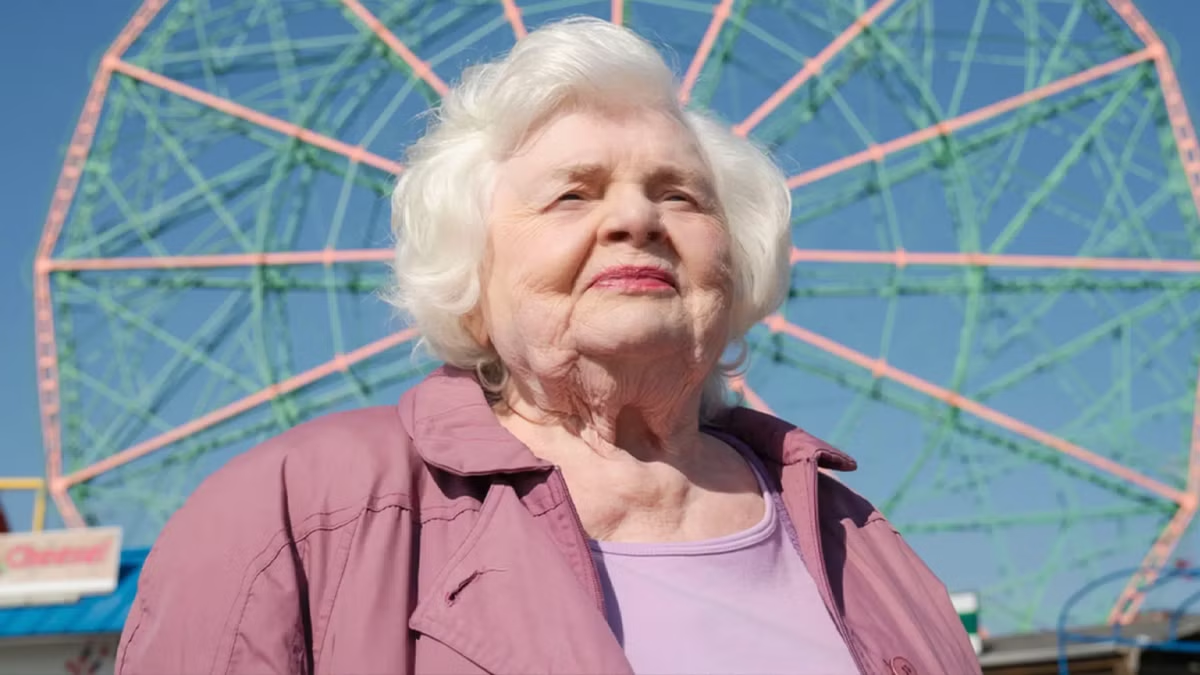“Eleanor the Great” Review
Director: Scarlett Johansson Screenwriter: Tory Kamen Cast: June Squibb, Erin Kellyman, Jessica Hecht, Chiwetel Ejiofor Distributor: Sony Pictures Classics Running Time: 98 min. MPAA: PG-13
June Squibb is such a talented elderly actress that it is hard to accept the uneven balance of her desperation and exuberance in Eleanor the Great. Her character’s deception is presented as a mixture of wanting to seem like someone greater and finding ways to recapture what was lost. While there’s undoubtedly a level of empathy in this misunderstanding of spinning yarns in twilight years, it rarely rises above melodrama in its stumbling nature of exploring the complicated feelings of getting older and watching legacies die.
Squibb plays Eleanor, a feisty woman living with her friend and holocaust survivor Bessie (Rita Zohar). They’re active and cunning enough to speak back at the young grocery store clerk, dismissive of pickles or a nearby customer scutinizing the kosher preference. While Eleanor has an intoxicating level of confidence, she also lies to be seen as someone more worthy of her witty mouth. But when Bessie passes away, Eleanor has lost a part of herself, especially when she’s forced to move in with her busy daughter and mildly distant grandson. All the wisecracks and cunning nature won’t be enough to make her a more vocal part of her family’s life in the city.
Fearing a lack of attention, Eleanor decides to take on Bessie’s history, adopting her story of being a Holocaust survivor, something she assumes Bessie would’ve been cool with. Her tearful tales attract the attention of Nina (Erin Kellyman), a young adult who has also felt the sting of grief with the loss of her mother. An unlikely bond forms between the two, given that Nina wants to document the stories of such a survivor. Although this abundance of lies will break with the added notoriety, there’s a sereneness before the hammer drops about the desire to be more knowing of Jewish grief and the problems that come with getting older.
It’s a premise that evokes some empathy, sure, but it also spends a lot of time spinning its wheels of piano-infused sincerity and regret, playing familiar keys without much bravado. There’s a softness present that spends so much time stewing in Squibb’s quirky portrayal that it never has enough courage to place her in a more challenging scenario that doesn’t come off like melodrama. The most concerning aspect for Eleanor is that her lies garner the attention of Nina’s newscaster father, Roger (Chiwetel Ejiofor). But rather than speak objectively about Eleanor’s situation, Roger uses his broadcast time to deliver a meaningful monologue relating Eleanor’s fibs to the loss he has felt in his life. It’s a sweet passage, but one could only arrive in a picture so sacrosanct that a lovely old lady like Eleanor would be easily forgiven for posing as a Holocaust survivor. It makes one wonder what other con-worthy hijinks she could stir up.
Eleanor the Great proves that June Squibb is a great actress, too great for something as overly tender and meandering as this picture. Somewhere within this story is a more meaningful exploration of what it means to be Jewish and the somberness of mortality that could fit an off-beat note. But it needed something more than tearful monologues and witty retorts by Squibb. Funny as she may be, she can’t hold this rickety premise together, where it always feels like something isn’t quite working. Eleanor might be a character who can spin lies into being taken seriously, but this film doesn’t have that same charm.

